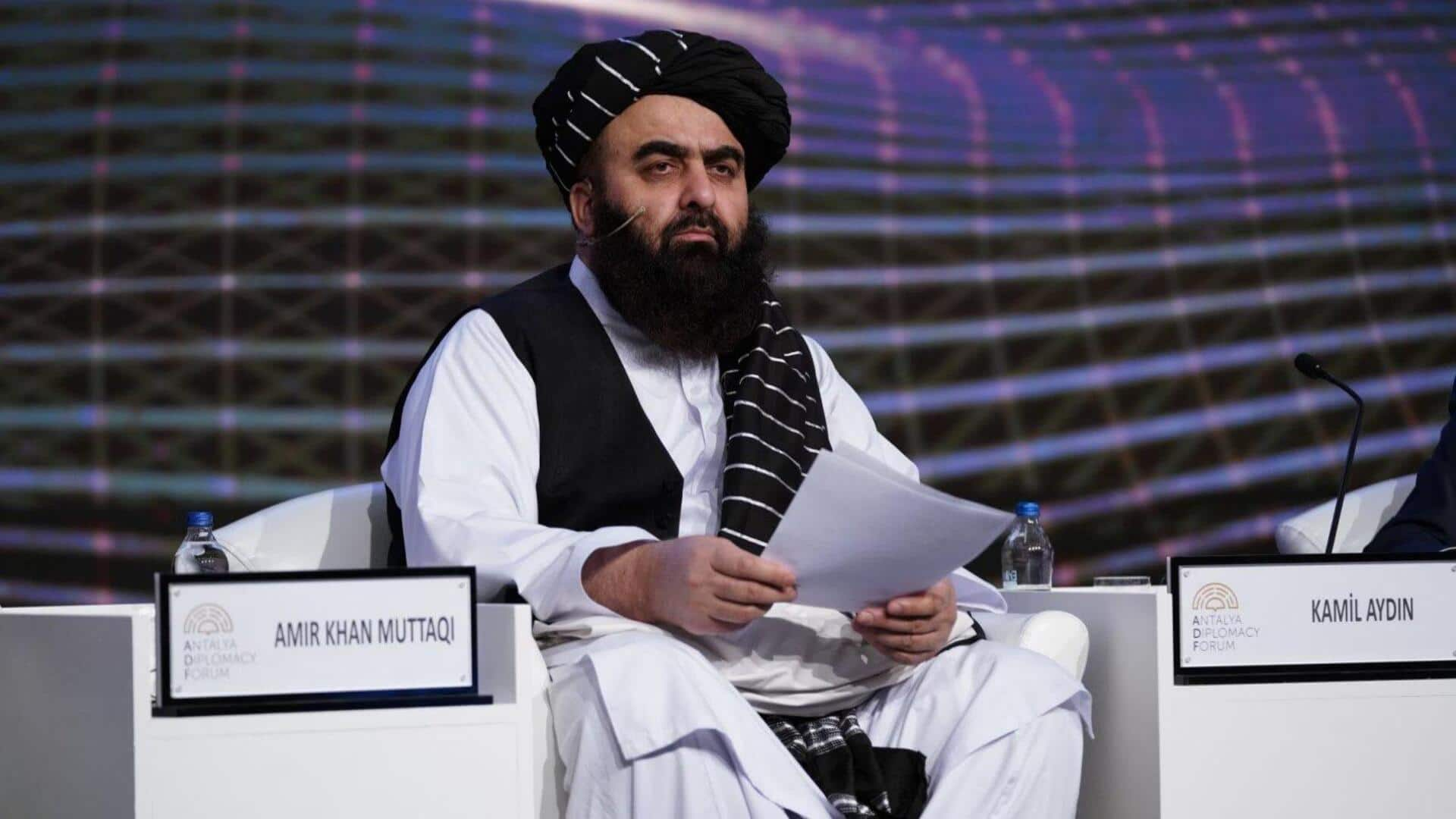
India faces flag dilemma as Taliban minister visits India
What's the story
Afghanistan's Foreign Minister Amir Khan Muttaqi arrived in India on Thursday, the first by a senior Taliban leader since the group took power in August 2021. The visit is significant as it comes amid India's efforts to strengthen ties with Afghanistan under the Taliban regime. However, it has also created a diplomatic conundrum for New Delhi over flag protocol during meetings with Indian officials.
Diplomatic challenge
Flag protocol issue
The diplomatic protocol in India requires the national flag to be placed alongside the visiting country's flag during official meetings. However, since India does not recognize the Taliban government, it does not permit their flag to be flown at its embassy. The Afghan Embassy in New Delhi continues to display the flag of Afghanistan's Islamic Republic, which was used by former President Ashraf Ghani's government.
Travel exemption
UN grants travel waiver to Muttaqi
Muttaqi's visit was made possible after the United Nations Security Council granted him a travel waiver. The waiver allows him to stay in India for a week starting October 9. During his stay, he is expected to meet External Affairs Minister S Jaishankar and National Security Advisor Ajit Doval among other senior officials.
Diplomatic thaw
India engages with Taliban regime
Despite not officially recognizing the Taliban regime, India has been engaging with its interim government. This includes diplomatic exchanges and humanitarian assistance after a recent earthquake in Afghanistan. "We look forward to engaging discussions with him on bilateral relations and regional issues," Indian Foreign Ministry spokesperson Randhir Jaiswal said in a statement, offering the minister a "warm welcome." Neither side has revealed the meeting's agenda, but commerce and security are expected to be at the center.
Recent meetings
Trump demands Bagram back
Muttaqi's visit comes after meetings in Russia, the only country to have officially accepted the Taliban authority. He attended a regional meeting in Moscow, where Afghanistan's neighbors, including India, Pakistan, Iran, China, and other Central Asian countries, issued a joint statement opposing the deployment of foreign military infrastructure in the region. Last month, US President Donald Trump suggested that "bad things" would happen to Afghanistan if it did not return Bagram, citing what he called its vital location near China.